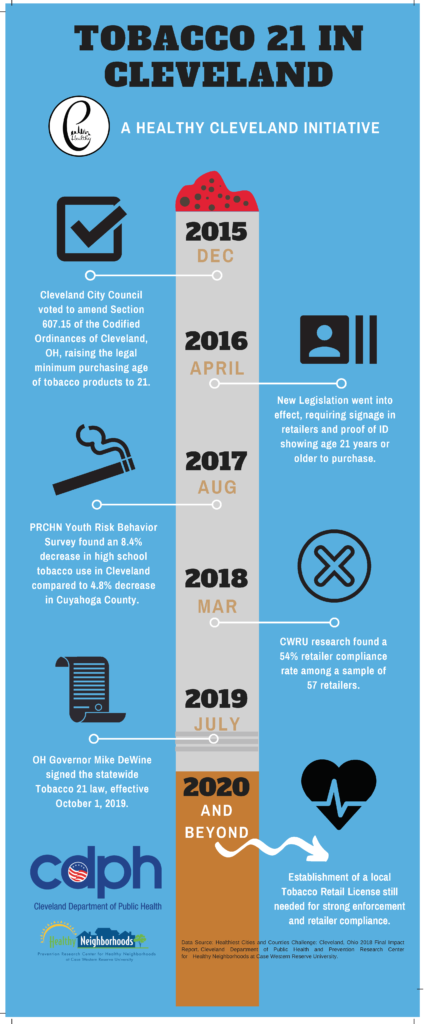Public Health Policy Implications
Public Health Policy Implications
Cigar products are not currently regulated by the US Food and Drug Administration’s Center for Tobacco Products (CTP), however, the agency has proposed a rule to enact their regulatory authority. Alternative cigar products have been popularly used since 1995, but the overwhelming majority of tobacco control literature focuses exclusively on cigarettes. Should CTP choose to enact regulatory authority over cigar products, it will require hard data to inform any regulations adopted, making the PRCHN’s research in the area of cigar product use of great value.
Dr. Trapl’s work has already been used to inform policy interventions in the City of Cleveland.
-
Tobacco 21
In early 2016, the City of Cleveland adopted legislation to increase the minimum legal age to purchase all tobacco products to 21 years, partly based on research Dr. Trapl presented to the Cleveland City Council Health and Human Services Committee. The data are included in the language of the final legislation.
Read more about the Tobacco 21 legislation here.
-
Sales Restrictions on Flavored Tobacco Products
Cleveland City Council is also considering restricting the sale of flavored tobacco products to tobacco retail shops exclusively, which would reduce the number of stores selling these products from over 600 to approximately 3, significantly reducing youth access. Again, key in consideration of this legislation was data gathered through YRBS and tobacco retail surveillance data and presented to City Council by Dr. Trapl.
Read more about the PRCHN contribution to the Truth Initiatives report on Flavored Tobacco Products here.

